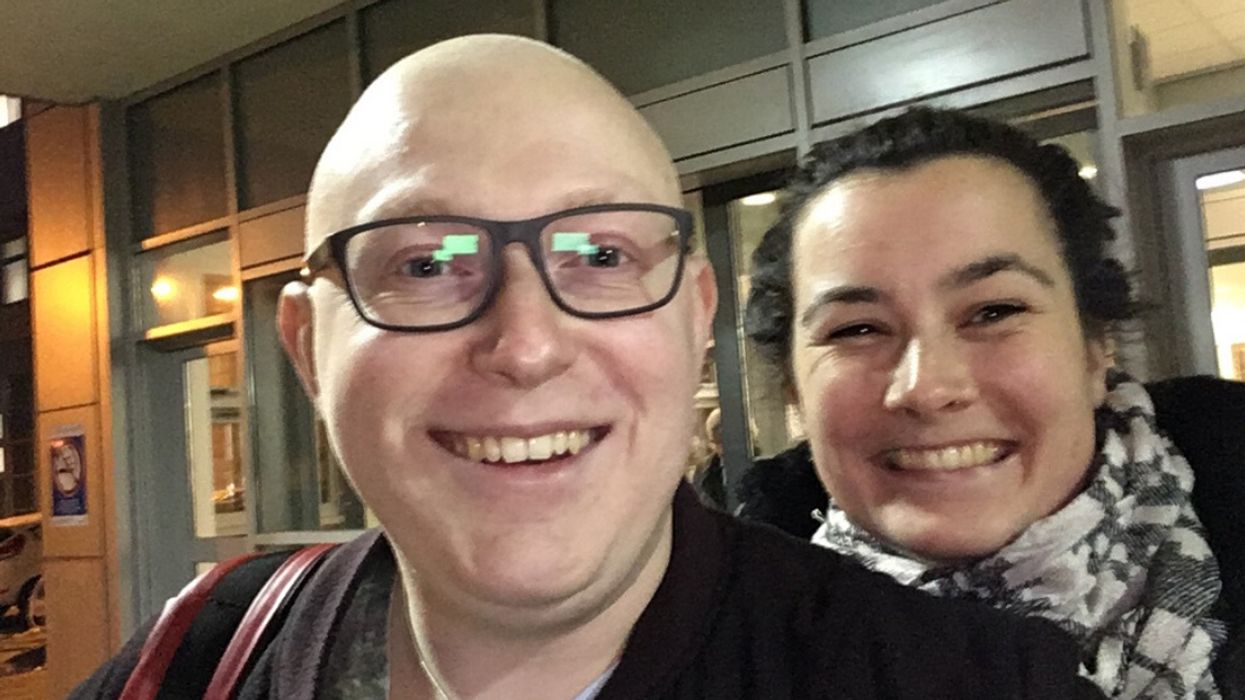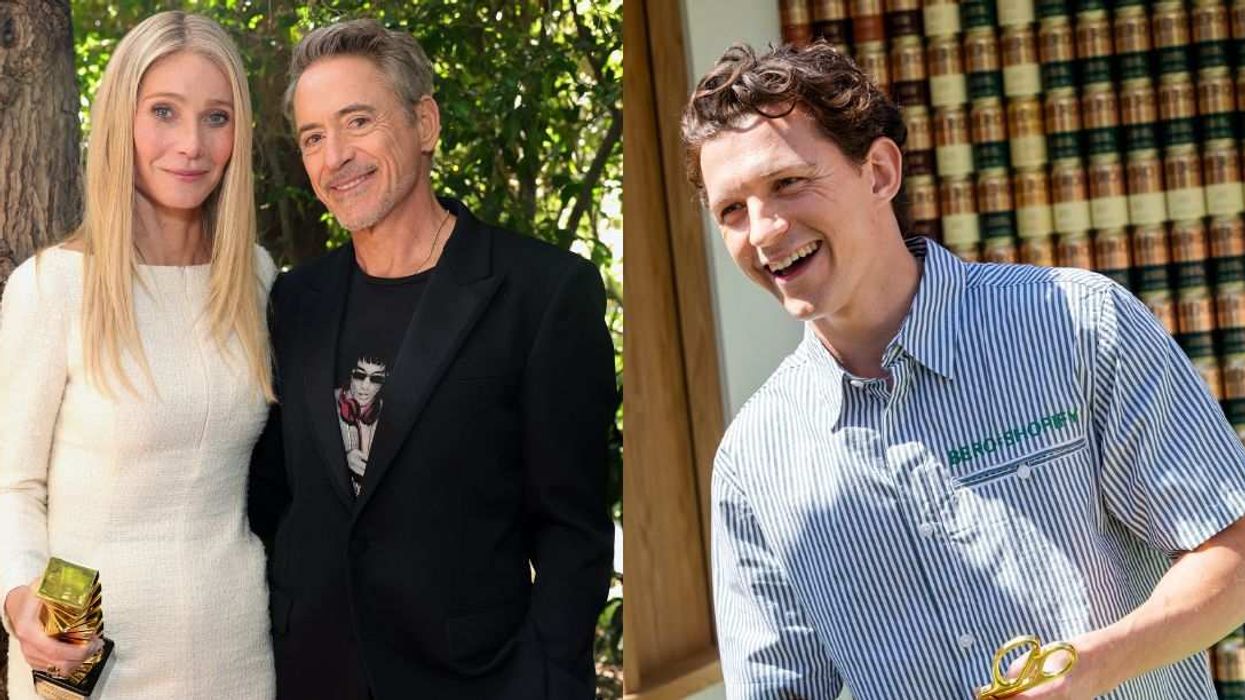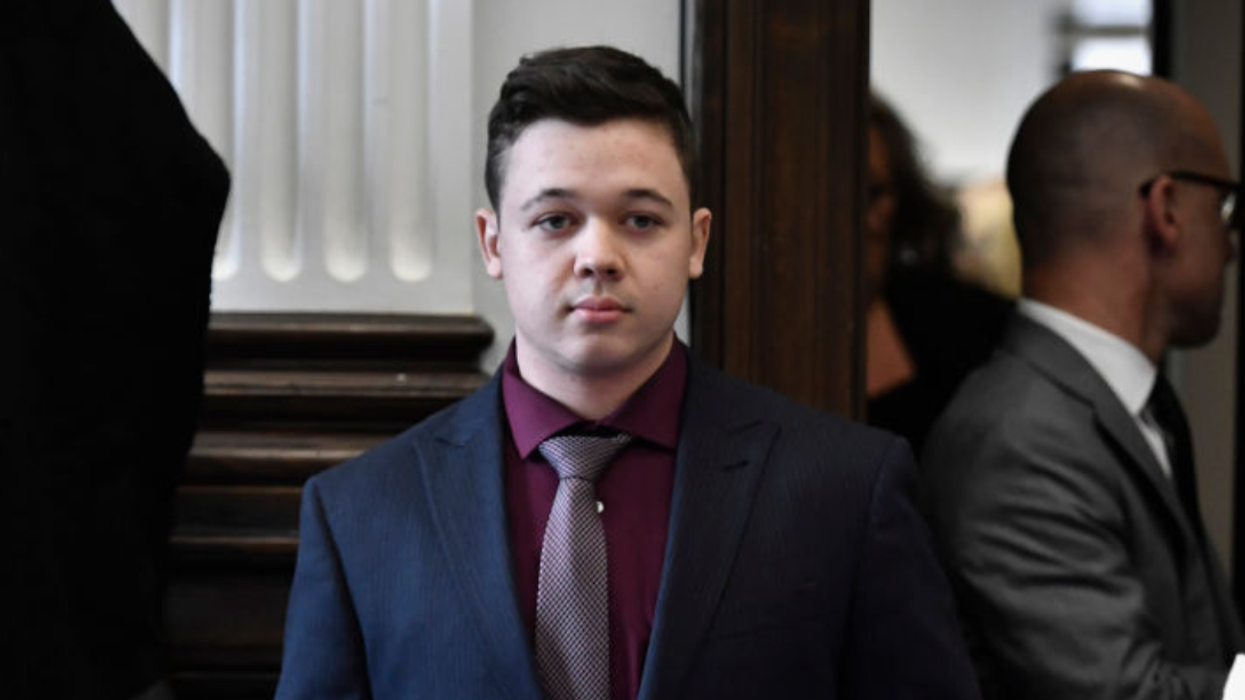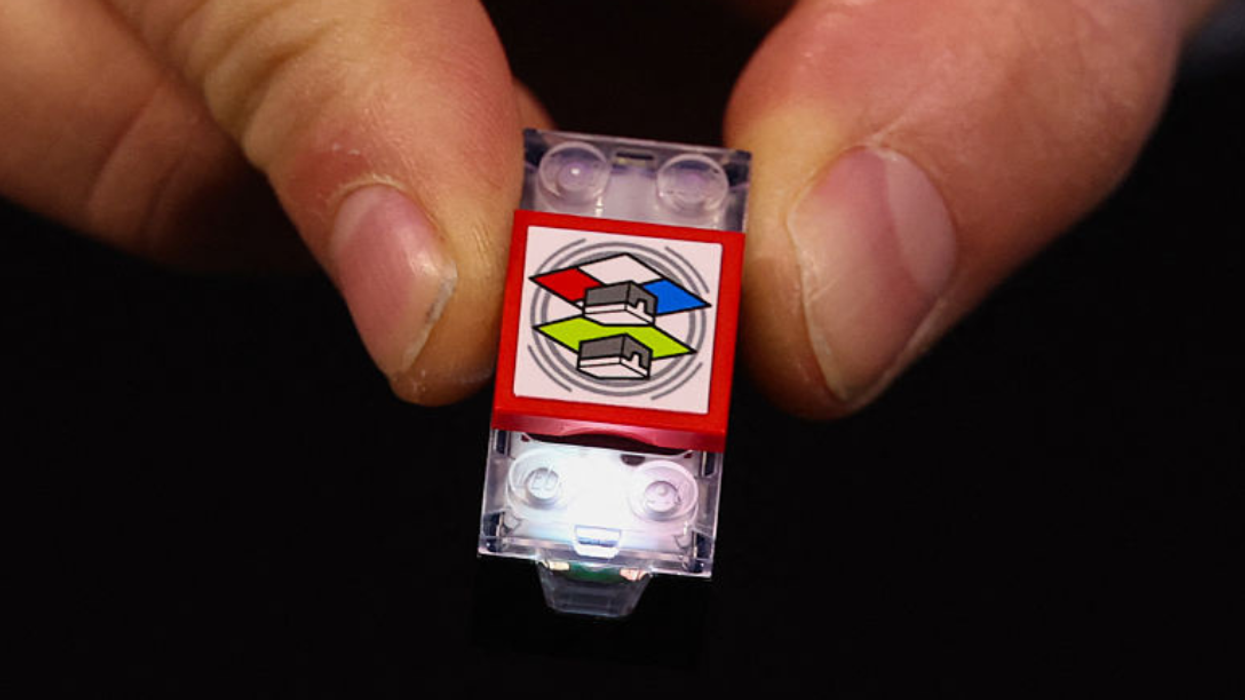A new dad is celebrating the birth of the baby boy he feared he might never have after losing his right testicle to cancer – and claims the disease has improved his life by showing him what really matters.
Enjoying a near-perfect existence when the bombshell dropped that he could have testicular cancer in May 2017, Joseph Kelley Hook, 29, had just returned to the UK after a dream trip, backpacking across South America with his soon-to-be wife, civil servant, Rachel, 30.
Their lives were mapped out, with their wedding day set for July 6, while Joseph was starting a new job as a local newspaper journalist in Swindon, Wiltshire, England.

But, feeling agonizing pain in his groin during a run on a late May bank holiday and seeing that his right testicle had tripled in size, Joseph knew something was very wrong – signaling the start of a cancer journey that threatened to send his idyllic life veering off course.
Fortunately, Joseph's positive attitude, great medical help, and Rachel's unerring support saw him through and, after receiving the all clear in January 2018, against the odds, on March 28 this year, the couple's son Jacob was born, weighing 5lbs 15oz.
Joseph said:
"In a weird way my life is so much better now I've had cancer. When you're constantly thinking, 'What if I die?' it makes you realize what's important."
"Rachel was my rock, and even though I already knew how much I loved her, it made me realize just how special she is to me," he added.
"Finding out she was pregnant was just incredible. For a long time I was worried if I would ever be able to be a dad, which makes finally being one all the more amazing."
Joseph first realized something was very wrong when he went for a run on a late May bank holiday in 2017, while he was visiting his grandparents in Bridgend, South Wales.
He recalled:
"I started getting horrendous pain in my groin. It was so bad that I could barely walk or sit down."
"When I checked that area, my right testicle had swollen to three times its usual size, so I knew I needed to see a doctor straight away."
Rushing to the hospital, Joseph was initially told he had a possible infection and was prescribed antibiotics. But when the pain failed to subside, the following week, when he started his new job in Swindon, he went to get it checked again at a walk-in clinic.

"The nurse took one look at my testicle and said, 'This isn't right,' advising me to see a specialist," he recalled.
"Alarm bells started ringing then. Like most men, I'm a fan of my testicles and I didn't want anything to be wrong with them. But not for a second did I think it would be cancer."
Referred to Swindon's Great Western Hospital, the following day Joseph saw a urologist who gave him a testicular ultrasound – the results of which, soon after, revealed what looked like a tumor in his right testicle, which was, potentially, cancerous.
He said:
"That was the first time I felt nervous. I was at the appointment by myself, because Rachel was still living and working in London at the time and wasn't due to move to Swindon for a few weeks."
"And I didn't know anyone else in Swindon. All of a sudden I just felt very much alone with this scary piece of information."
When Joseph was told his right testicle needed to be removed, then biopsied to determine if the tumor was cancerous, he was horrified.

"Having my testicle removed bothered me more than the fact I might have cancer," he said. "I didn't feel ill, so I didn't feel like I had cancer, but I knew I didn't want to lose one of my testicles."
A few days later, Joseph had an hour-long operation to remove his right testicle.
"It was all a bit of a blur and a bit bizarre," he said. "I remember they drew an arrow on me pointing to my right testicle and I was just like, 'Isn't it obvious?' Then I was put to sleep, so I didn't feel a thing."
He added:
"When I came to, I was in a bit of pain, but nothing more than the standard post operation pain."
A week later the biopsy confirmed that Joseph had cancer and a subsequent CT scan at Oxford's Churchill Hospital revealed it had possibly spread.
"The doctors were concerned about the lymph nodes in my back," he said. "They thought the cancer could've spread, but they needed to monitor it first – so it was a matter of, 'Wait and see.'"

Joseph added:
"It was like being left in limbo land – I could be fine, or I could have cancer – I just didn't know."
Monitored for three months, Joseph tried to get on with normal life and married Rachel, as planned, in an outside venue near Petworth in West Sussex, on July 6.
"It was still one of the best days of my life, but it was odd," he said. "It was weird to have so many people coming up and asking, 'How are you?' in a much more meaningful way than they would normally. There were a few more b******s jokes than usual too!"

In September, a follow up CT scan confirmed that the cancer had spread, and Joseph needed chemotherapy.
Concerned that his fertility could be affected, he and Rachel stored some of Joseph's sperm – a service available on the NHS – at a fertility clinic in Oxford, so they would have the best chance of having children.
Funding for the freezing and storage of sperm is provided by the NHS, if the cancer treatment meets the specific criteria for funding and is assessed when your doctor refers you for fertility preservation.
"When I found out I'd lose a testicle I thought I might not be able to have kids, but the doctors reassured me I should be fine," he said.
"But chemo is known to reduce fertility, so I stored my sperm in case we ever needed it for IVF."
Following three courses of chemo, each lasting three weeks, injected into his arm and buttocks, taken orally and given using an IV, in January 2018, Joseph was finally told he was cancer-free.

"It was brilliant – the most amazing feeling to not have this dark cancerous cloud hanging over us anymore," he said.
But he and Rachel were still concerned about their chances of having a baby.
"It was always a worry, as we wanted to have a baby the natural way," he said. "We did try for a little while and nothing happened, so it looked like we might need IVF."
But Joseph – who realizes, looking back, that the first signs of his cancer came when he and Rachel were backpacking and he experienced mild pains in his groin, which he thought were a strained muscle – said they were delighted to fall pregnant naturally.
It was a massive relief for Rachel, who still found it hard to accept that her young, active husband had battled cancer.
She said:
"I suppose we were just in shock at first. It's that age old saying, 'Oh that won't happen to us,' and, 'It won't be cancer.' "
Rachel continued:
"I remember before Joseph was diagnosed, he said, 'What if they have to remove my testicle?' I just told him he was being over-dramatic – but he wasn't."
"The whole thing left us in the unknown."
"Would we still be able to be intimate? Would we have kids? Would Joseph be okay? We just didn't know and that was the hardest part."
"It's been a strange time, having a newborn but not being able to have any friends or family around because of the lockdown. But in some ways, it's been lovely to just be the three of us," she added.
"Joseph has been my rock and I'm just so grateful that he's still here. I can't bring myself to think about what would've happened if the doctors hadn't acted so quickly."
Meanwhile, Joseph now admits that the prospect of losing his testicle frightened him more than a diagnosis of cancer.
He explained:
"It's not normal to lose such a personal part of your body, and even though you don't want to admit it, it does make you feel like less of a man. I was worried I couldn't do the one thing I was supposed to do – have a baby."
"And when I had chemo, I did panic that my chances were just getting lower and lower."
But, since Jacob was born at Great Western Hospital at the end of March, Joseph has realized that surviving cancer has improved his outlook on life.
"I really appreciate what's important to me now, like the people I love," he said.
He also appreciates how lucky he was that his cancer was caught when it was and has appealed to other men to be more vigilant.
"Before I had cancer, I'd rarely ever check my testicles – I'd only check in the shower if I saw an advert for it on television," he said.
"In my case, I was lucky because the pain became so obvious. I don't know if I'd have gone to a doctor so quickly if it hadn't of been," he added.
"I'm very aware that if it had happened in a different time or place, I wouldn't be here today let alone be a father."
"So, what I'd say to all men is check yourself and go to the doctor. It can't do any harm just to check, but it can do a lot of harm if you don't."
Sam Gledhill, Global Director for Testicular Cancer for Movember – the global organization committed to changing the face of men's health – said it is the most commonly diagnosed form of cancer in young men in the UK.
"Although testicular cancer is a highly curable disease, early detection and early action is critically important," he explained. "That's why Movember wants all men to get to know their nuts. A self-examination every month or so is the best way to get to know what's normal for your body."
"If you notice a change in size or shape, a lump which wasn't there before, or if they become painful to touch, see a doctor. Don't panic but do get it checked out."
For more information on how to check yourself and facts on testicular cancer, head to uk.movember.com/mens-health/testicular-cancer
















 @theshaderoom/Instagram
@theshaderoom/Instagram @theshaderoom/Instagram
@theshaderoom/Instagram @theshaderoom/Instagram
@theshaderoom/Instagram @theshaderoom/Instagram
@theshaderoom/Instagram @theshaderoom/Instagram
@theshaderoom/Instagram @theshaderoom/Instagram
@theshaderoom/Instagram @theshaderoom/Instagram
@theshaderoom/Instagram @theshaderoom/Instagram
@theshaderoom/Instagram @theshaderoom/Instagram
@theshaderoom/Instagram @theshaderoom/Instagram
@theshaderoom/Instagram @theshaderoom/Instagram
@theshaderoom/Instagram @theshaderoom/Instagram
@theshaderoom/Instagram @theshaderoom/Instagram
@theshaderoom/Instagram @theshaderoom/Instagram
@theshaderoom/Instagram @theshaderoom/Instagram
@theshaderoom/Instagram @theshaderoom/Instagram
@theshaderoom/Instagram @theshaderoom/Instagram
@theshaderoom/Instagram